N95 Respirator – 20/box
| Priced Per | Pack of 20 Respirators |
|---|
The McCordick N95 mask is approved by the US NIOSH and protects the nose/mouth from non oily particulate matter. Since it is certified by the US NIOSH as meeting all requirements applicable to standard N95 respirators, it also provides protection from viral and bacterial pathogens.
These are NIOSH approved McCordick N95 masks. They are tested and fully approved by the US National Institute For Occupational Safety & Health (NIOSH) and carry the code TC-84A-3888 as evidence of this certification. They are included on the CDC’s list of NIOSH approved N95 Particulate Filtering Facepiece Respirators (FFR), shown here.
This particulate respirator will provide comfortable and reliable protection against non oil particles of size 0.3 microns or more. Like KN95 respirators, these masks are designed to block at least 95% of these particles. They are sold as a pack of 20 respirators.
These N95 masks protect against particulate matter such as may be produced from processing of minerals, coal, iron ore, flour and other similar materials. It will also protect against liquids or non oil based particles from sprays provided these do not emit oil or vapors.
The ability of an N95 respirator to prevent harmful particles reaching the nose or mouth hinges on its use of propylene as a component of its melt blown filtration layers. Propylene carries an electrostatic charge that boosts its ability to trap harmful particles and stop them getting through the respirator. To imagine how this works, think of the effect you see when tiny pieces of lint cling to clothing you have just removed from a dryer. Propylene carries an electrostatic charge that enables it to trap tiny particles in the same way.
Although many viral or bacterial particles (including those produced by the coronavirus) can be as small as 0.1 microns in size, they are usually transported on larger particles such as the droplets emitted while talking and breathing. The McCordick N95 mask blocks these larger particles from entering the mucous membranes of the nose & mouth, thus reducing the risk of infection.
McCordick N95 Mask – Key Features
- Lightweight construction with superb wearing comfort;
- Nosepiece that is adjustable to fit the contours of your face;
- Heavy duty headstraps to ensure a secure seal to your face, with minimal risk of leakage.
Is the McCordick N95 Mask approved for medical use?
Medical or surgical grade N95s have been certified to provide (in addition to the particulate protection provided by non medical N95s) fluid resistance in order to protect the user from splashing of blood or bodily fluids. . These N95s are preferable for use by medical professionals (such as surgeons) in clinical or laboratory settings in which splashing of blood or other bodily fluids is a potential hazard. They are subject to additional certification by the US FDA.
The McCordick is not a surgical or medical N95 as it has not been certified to protect from blood splash, the main distinguishing feature of such respirators. Hence, it should not be used in environments in which there is a risk from splashing of blood or other body fluids.
However, as we have mentioned above, this N95 mask is a fully NIOSH approved N95 filtering facepiece respirator (FFR). It is therefore fully equipped to filter any non oil particulate matter, whether from construction, sanding or viral/bacterial pathogens. Any NIOSH certified N95 respirator can offer protection against viral or bacterial infection, provided it is worn and used properly.
As pointed out in these guidelines from Health Canada:
“N95, N99 and N100 respirators are FFRs certified by the U.S. National Institute for Occupational Safety and Health (NIOSH). FFRs were developed mainly to filter out airborne particulates of a certain size and for use in an industrial setting.
Of these 3 respirators, N95 respirators have been adopted for use in health care settings as protection against influenza and infectious diseases (for example, tuberculosis). WHO’s interim guidance and the U.S. Occupational Safety and Health Administration (OSHA) both indicate that N95 respirators can be used to reduce the spread of COVID-19.”
For more information on the difference between regular i.e. non medical N95s (like the McCordick) and medical N95 respirators, please refer to this page from 3M (one of the largest N95 manufacturers in the world), which also confirms that both medical and non medical N95s can effectively filter airborne viral and bacterial particles when worn properly.
This implies that there is no difference between “medical” and “non medical” N95s where protection from airborne viruses like the one that causes Covid-19 illness is concerned.
As an NIOSH approved N95 FFR, the McCordick N95 mask is therefore appropriate for use for protection from infection by the virus that causes Covid-19 illness (or, indeed, from infection by other respiratory viruses).
Usage & Cautions
To be sure you are using this N95 mask correctly, follow the recommendations of OSHA regulation 29 CFR 1910.134. We have also provided some guidance in the instruction tab on this page on how to put on your mask properly.
The McCordick N95 mask does not provide oxygen. As a result, you should use it only in well ventilated areas where there is sufficient oxygen to support life.
If you use the N95 mask to enter a contaminated area, leave the area immediately if the mask becomes damaged and cannot provide a proper fit. Dispose of the respirator and replace it before re entering the contaminated area.
Before putting on your McCordick N95 mask, inspect it carefully to ensure there are no holes in the breathing zone other than the punctures around staples (which do not compromise its performance).
To Apply:
-Hold the mask in one hand with its nosepiece at your fingertips. Allow the headbands to hang below your hand;
-Press the McCordick N95 mask against your face, keeping the nosepiece on the bridge of your nose;
- Place the top band high on the back of your head. Position the lower band beneath the ears;
- Use both your hands and mould the nosepice of the mask to the shape of your nose to ensure an hermetic seal;
- Test the fit to ensure the seal is secure and air cannot enter the respirator by passing under the edges pressed against your face.
Q & A
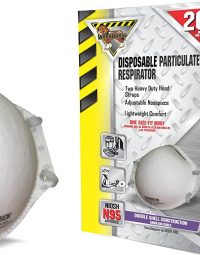 N95 Respirator - 20/box
N95 Respirator - 20/box

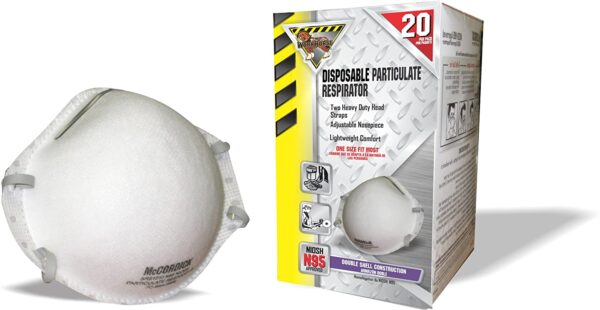
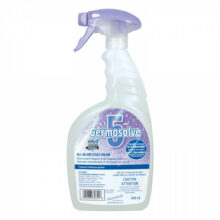


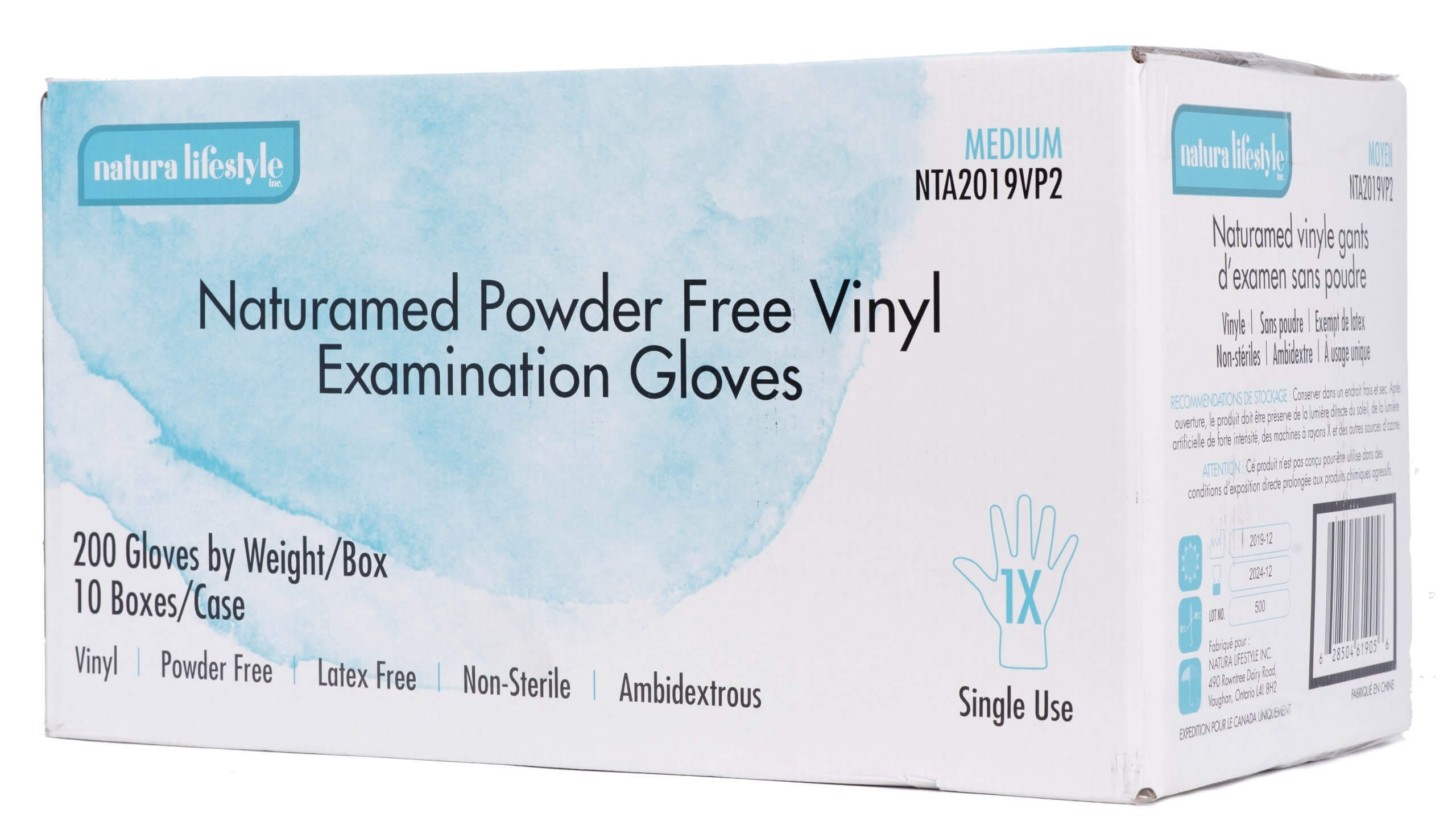
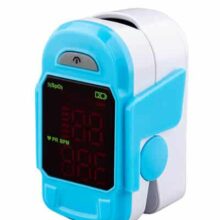
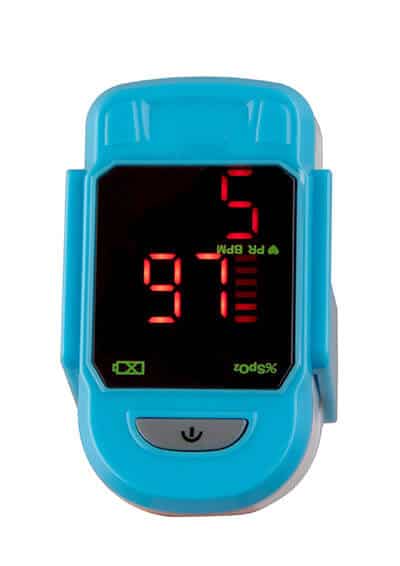
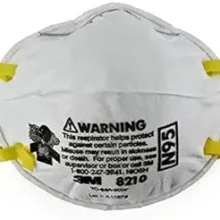
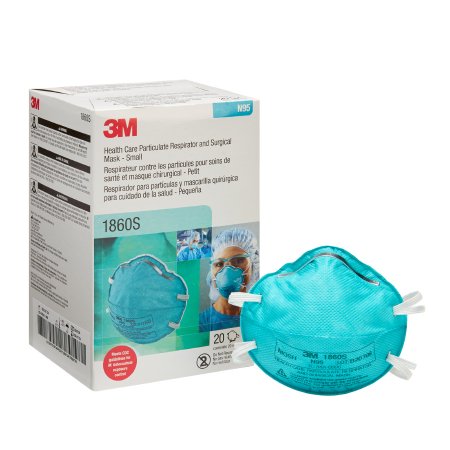
Reviews
There are no reviews yet